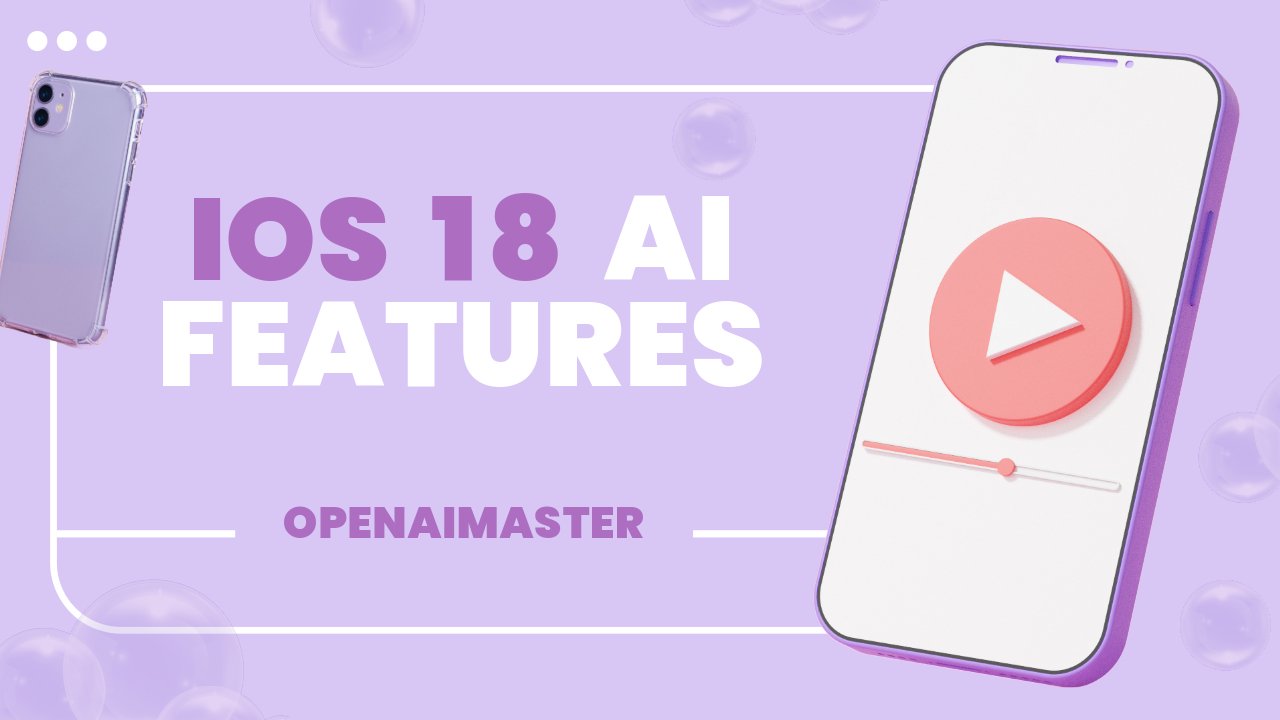As the calendar turns towards Apple’s annual Worldwide Developers Conference in June 2024, the technological world is awash with rumors and speculative fervor. At the epicenter of this buzz is the imminent release of iOS 18 – a software update that could usher in a seismic paradigm shift for the iPhone and Apple’s entire mobile ecosystem. This pivotal moment sees the Cupertino juggernaut double down on artificial intelligence in an unprecedented way, fusing cutting-edge AI capabilities with its mobile operating system and redefining how we interact with our indispensable digital companions.
The AI Integration, Privacy Paramount
While competitors like Google, Microsoft, and Samsung have embraced cloud-based AI processing, Apple’s approach aligns with its long-standing ethos of prioritizing user privacy and data protection. iOS 18 will infuse AI capabilities throughout the iPhone experience, but all computations will occur securely on-device, rather than relying on cloud processing. This innovative architectural decision allows Apple to provide advanced AI functionality while safeguarding sensitive user data – a delicate balance that could position the company as the torchbearer for ethical AI implementation.
The ChatGPT Convergence: A Paradigm Shift
Unequivocally the biggest revelation surrounding iOS 18 is Apple’s strategic partnership with AI research titan OpenAI to integrate the groundbreaking ChatGPT language model directly into the operating system. This integration would effectively transform every iPhone into an AI-powered digital assistant, capable of understanding and responding to natural language queries and commands across the entire OS.
Imagine having your own personal AI copilot, seamlessly interweaving ChatGPT’s astounding language capabilities throughout your iPhone experience. From intelligent text composition and editing to voice-driven task execution and query resolution, this deep ChatGPT integration could fundamentally redefine how we engage with our mobile devices. No longer confined to the rigid constraints of predetermined software rules, our iPhones could dynamically adapt and respond to our needs with human-like cognition and flexibility.
The Appification of AI: Core App Transformations
But the AI revolution won’t be limited to a system-wide ChatGPT assistant. Apple is reportedly doubling down on AI capabilities across its core first-party apps, supercharging them with intelligent features that could forever alter how we interact with these digital tools.
The humble Notes app, for instance, could become a powerhouse of automated transcription, summarization, and organizational capabilities powered by large language models. Imagine effortlessly capturing meeting notes or lectures, only to have the app intelligently distill key insights and reorganize content for maximum clarity.
Similarly, the Photos app is rumored to receive a massive AI-fueled editing suite. With advanced machine learning algorithms, users could easily manipulate backgrounds, remove unwanted objects, and apply complex visual effects – putting professional-grade editing prowess in every iPhone owner’s pocket.
Even Apple’s iconic messaging platform could see significant AI enhancements, with natural language processing allowing it to proactively suggest contextually relevant emoji, GIFs, and text responses based on the conversational flow.
This proliferation of AI capabilities across Apple’s core app suite is a bold proclamation of the company’s vision – to transform the iPhone into an intelligent, hyper-personalized extension of ourselves, seamlessly adapting to our needs and augmenting our abilities.
The Mobile AI War Intensifies
Of course, Apple’s courageous foray into device-level AI is part of a larger technological arms race as competitors like Google, Microsoft, Samsung, and others double down on artificial intelligence integration within their respective mobile ecosystems.
Google has long been a pioneer in ambient computing and AI-powered assistants, with its formidable AI research prowess allowing it to develop cutting-edge natural language processing and computer vision models. Microsoft’s recent integration of advanced AI into its Bing search engine and Office suite is a direct challenge to Apple’s productivity dominance. And Samsung’s own AI ambitions for its Galaxy smartphone ecosystem could give Apple’s iPhone a run for its money.
However, Apple’s unwavering commitment to user privacy, combined with its immense financial resources, world-class AI talent, and the unrivaled cultural cachet of the iPhone brand, could provide a decisive competitive edge. By keeping all AI processing localized on-device, Apple could attract a significant segment of users who remain wary of the privacy implications of cloud-based AI systems.
Final Thoughts
As the June 2024 WWDC event draws near, the mobile technology world is bracing for a seismic shift driven by the inevitable proliferation of artificial intelligence. If the rumors and leaks surrounding iOS 18 prove accurate, Apple could be the key instigator of this revolution, ushering in an era of intelligent, hyper-personalized mobile experiences that were once confined to the realms of science fiction.
The iPhone’s hands-free “Hey Siri” future may soon give way to a reality where our smartphones function as sophisticated digital assistants powered by advanced language models like ChatGPT. Rather than rigid, predetermined software rules, our iPhones could dynamically adapt and respond to our needs with human-like cognition, flexibility, and contextual awareness.
From intelligent note-taking and summarization to effortless photo editing and predictive messaging, the AI appification of iOS 18 could elevate our daily mobile experiences to unprecedented heights of productivity, creativity, and personalization.
Moreover, Apple’s boldest strategic move may be its staunch commitment to on-device AI processing, positioning the company as the leader in ethical, privacy-centric artificial intelligence implementation. In an era where data privacy and security are of paramount importance, Apple’s ability to provide cutting-edge AI capabilities without compromising user data could be its most significant competitive advantage.
As the technological world holds its collective breath for the WWDC 2024 keynote, one thing is clear: the imminent release of iOS 18 marks a watershed moment for Apple and the mobile industry as a whole. The AI revolution is no longer a distant fantasy; it’s a reality that could soon be pulsating through the pocket supercomputers we call iPhones, changing our lives in ways we can scarcely fathom. Cupertino’s intelligent insurgency is upon us, and the ramifications could echo for decades to come.

